If your browser has been redirected to Mcafee – Security Warning, you have been scammed via an ad network. Ads displayed by the Mcafee – Security Warning domain are related to malware.
There are many spammers active on the Internet. These spammers try to scam people via the Internet by hijacking the browser and redirecting it to websites that eventually try to trick you. Mcafee – Security Warning is one of these websites.
For example, the Mcafee – Security Warning URL may show you a notification that your computer is infected with a virus. In addition, it is also possible that it is trying to trick you into installing adware on your computer. This could include browser extensions that supposedly add new functionality in the browser but contain malware that constantly displays unwanted ads in the browser.
It is advisable to close the Mcafee – Security Warning ad as soon as possible, do not click on the ad, and check your computer for malware. Suppose your browser is constantly redirected to the Mcafee – Security Warning domain. In that case, the adware may have already been installed on your computer. You should remove this adware as soon as possible.
Ads from Mcafee – Security Warning are often displayed on websites where you can download free software. Mcafee – Security Warning is thus a revenue model for online spammers. However, not only a revenue model, but Mcafee – Security Warning can also act as a website through which further attacks are carried out against your computer. Mcafee – Security Warning then offers malware that can infect your computer with ransomware or tries to attack the browser with dangerous scripts that can eventually take over your computer.
I recommend that you follow all the steps in this article to prevent your computer from being infected with malware. If malware is found, you can remove it immediately. For example, the ad Mcafee – Security Warning you should immediately close in your browser.
Remove Mcafee – Security Warning
Malwarebytes is an essential tool in the fight against malware. Malwarebytes is able to remove many types of Mcafee – Security Warning malware that other software does often miss, Malwarebytes is costing you absolutely nothing. When it comes to cleaning up an infected computer, Malwarebytes has always been free and I recommend it as an essential tool in the battle against malware.
Install Malwarebytes, follow on-screen instructions.
Click Scan to start a malware-scan.
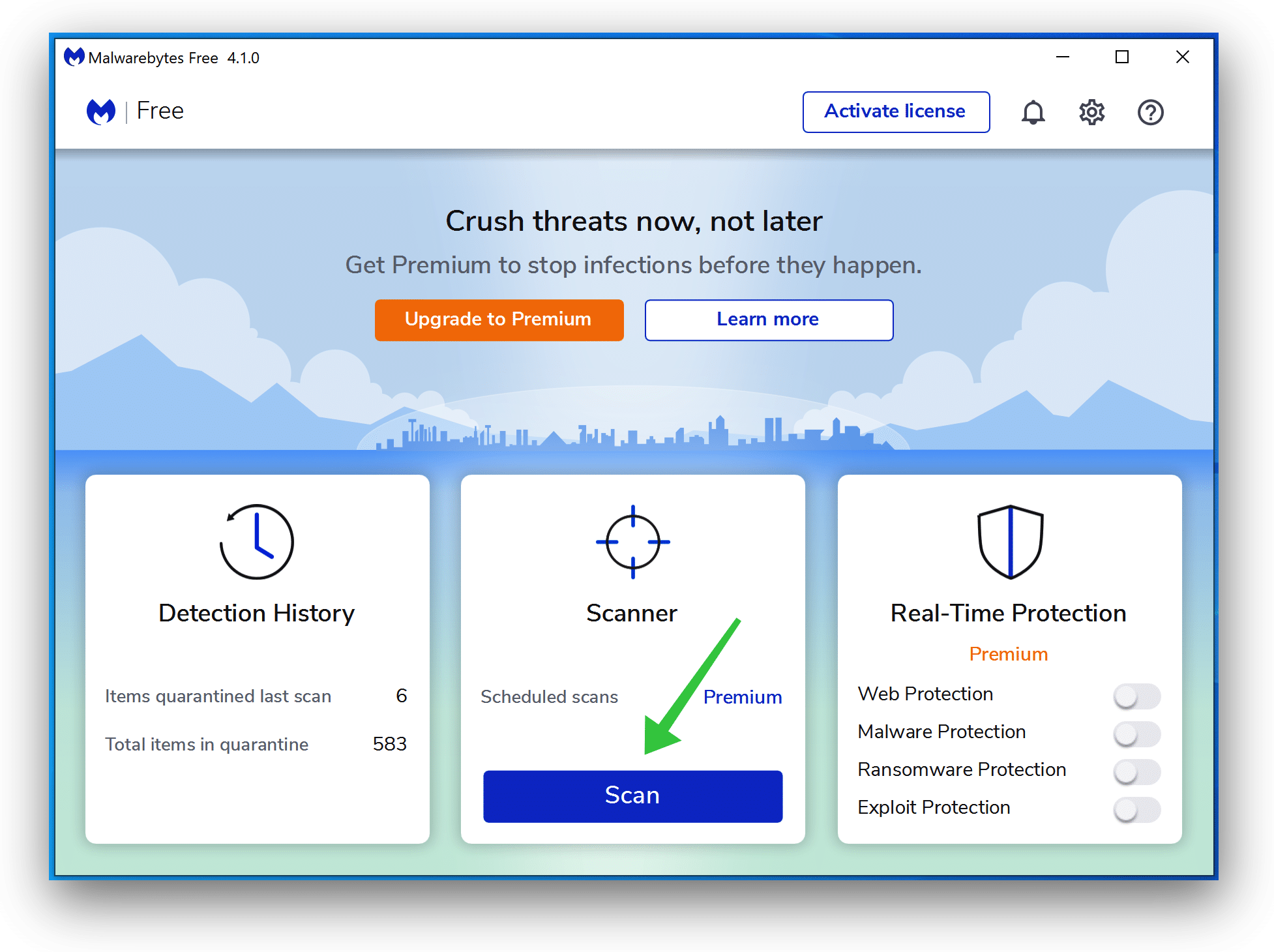
Wait for the Malwarebytes scan to finish. Once completed, review the Mcafee – Security Warning adware detections.
Click Quarantine to continue.
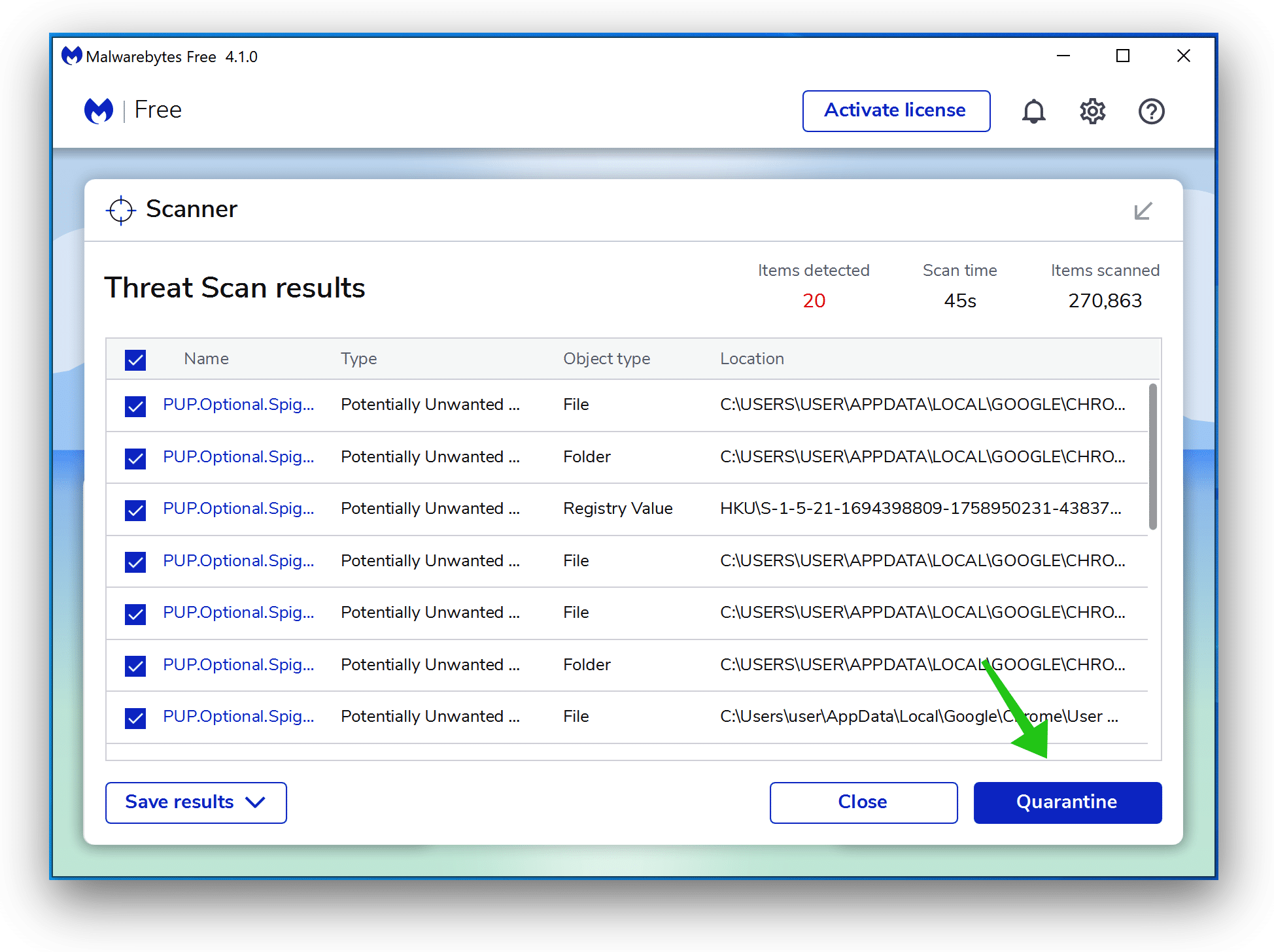
Reboot Windows after all the adware detections are moved to quarantine.
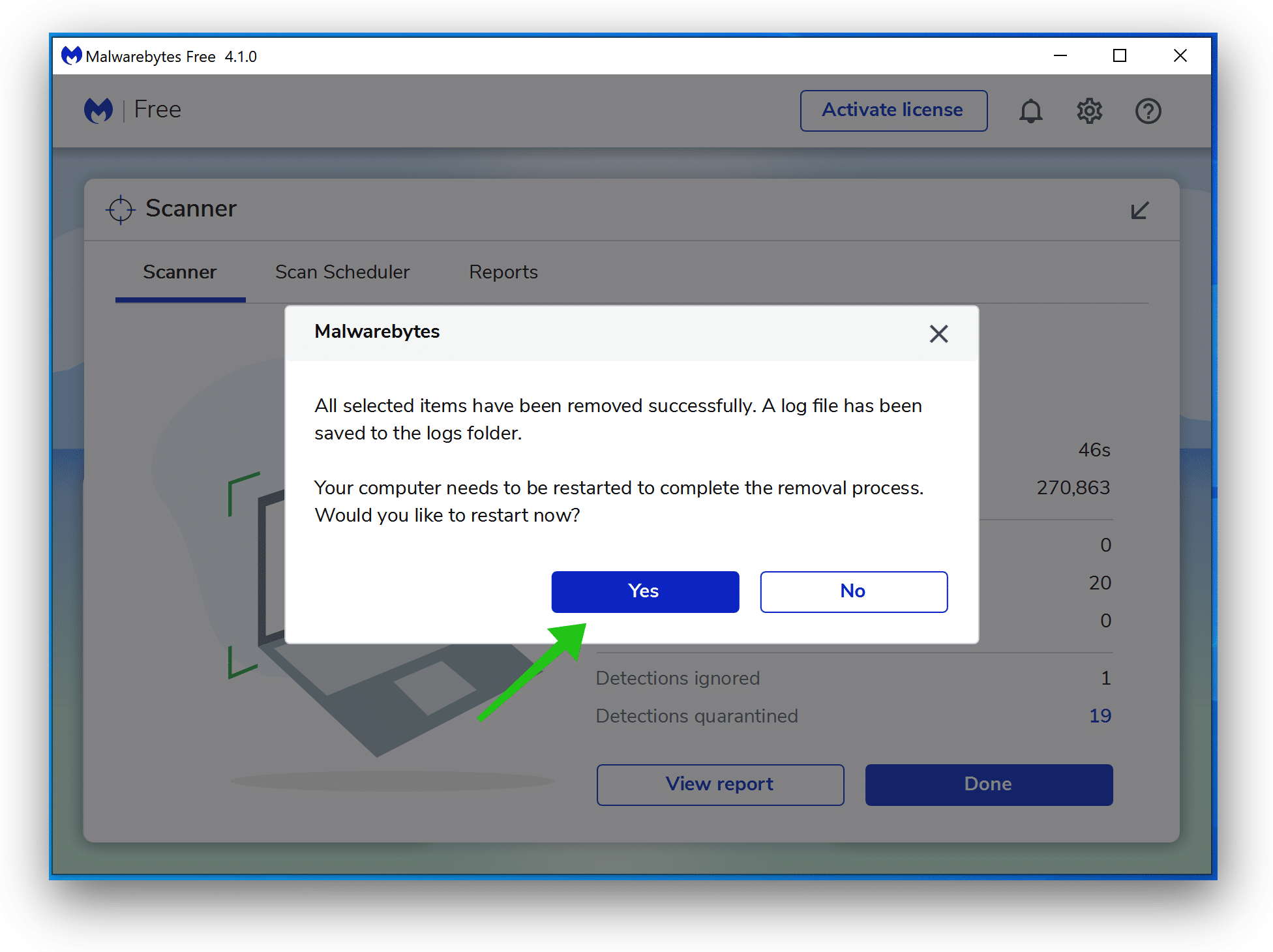
Continue to the next step.
Remove unwanted programs with Sophos HitmanPRO
In this second malware removal step, we will start a second scan to make sure there are no malware remnants left on your computer. HitmanPRO is a cloud scanner that scans every active file for malicious activity on your computer and sends it to the Sophos cloud for detection. In the Sophos cloud both Bitdefender antivirus and Kaspersky antivirus scan the file for malicious activities.
When you have downloaded HitmanPRO install the HitmanPro 32-bit or HitmanPRO x64. Downloads are saved to the Downloads folder on your computer.
Open HitmanPRO to start installation and scan.
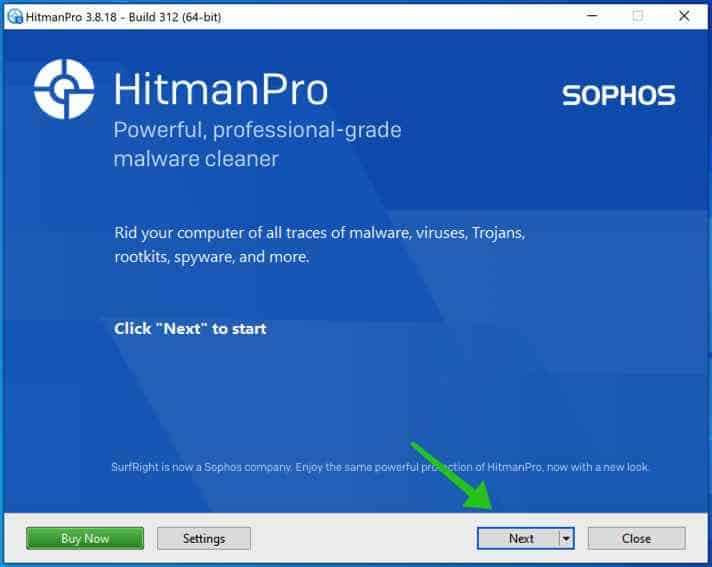
Accept the Sophos HitmanPRO license agreement to continue. Read the license agreement, check the box and click on Next.
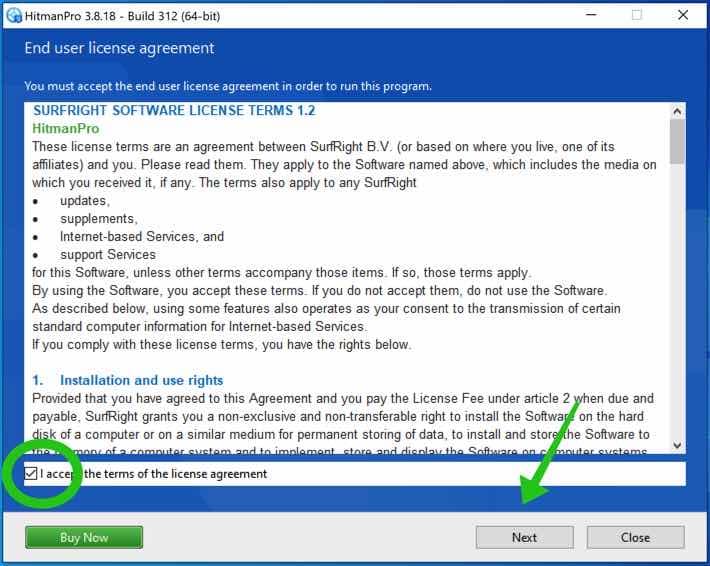
Click the Next button to continue Sophos HitmanPRO installation. Make sure to create a copy of HitmanPRO for regular scans.
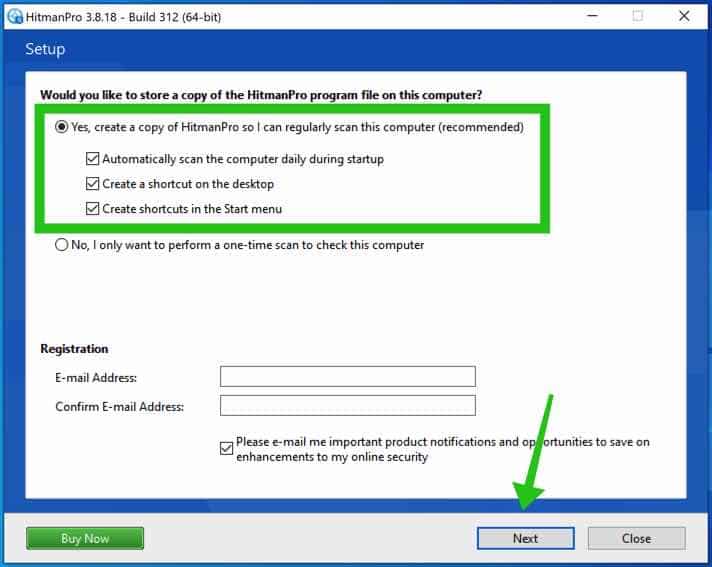
HitmanPRO begins with a scan, wait for the antivirus scan results.
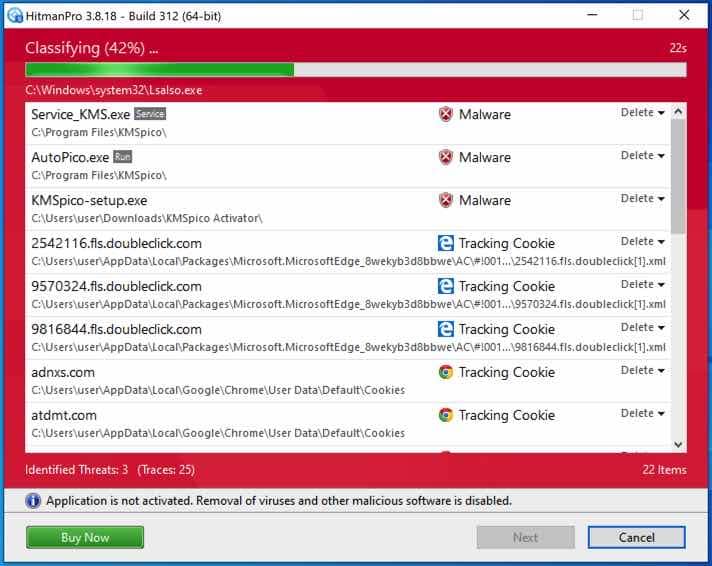
When the scan is done, click Next and activate the free HitmanPRO license. Click on Activate Free license.
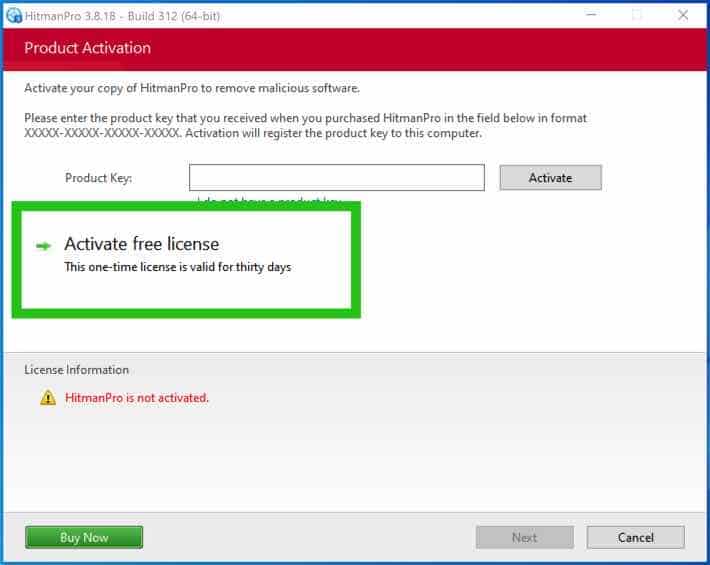
Enter your e-mail for a Sophos HitmanPRO free thirty days license. Click on Activate.
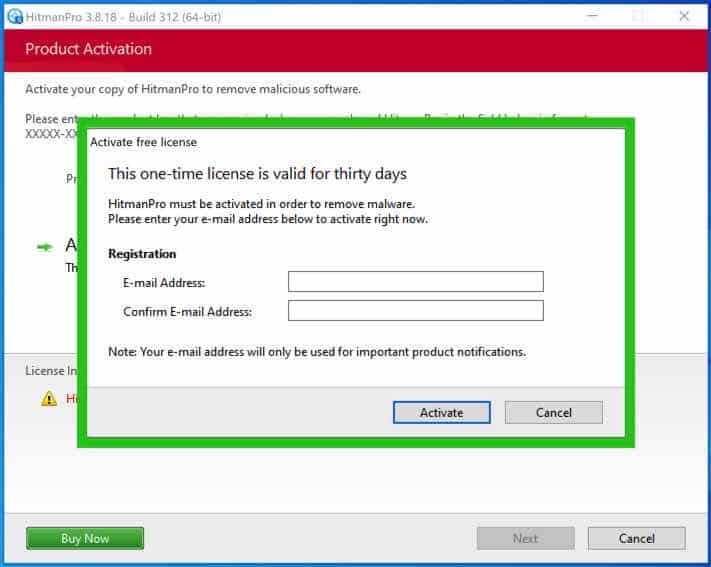
The free HitmanPRO license is successfully activated.
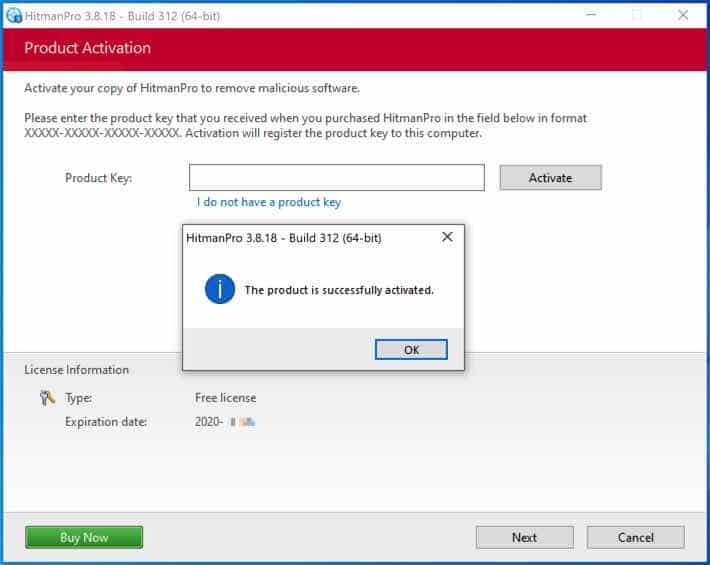
You’ll be presented with the malware removal results, click Next to continue.
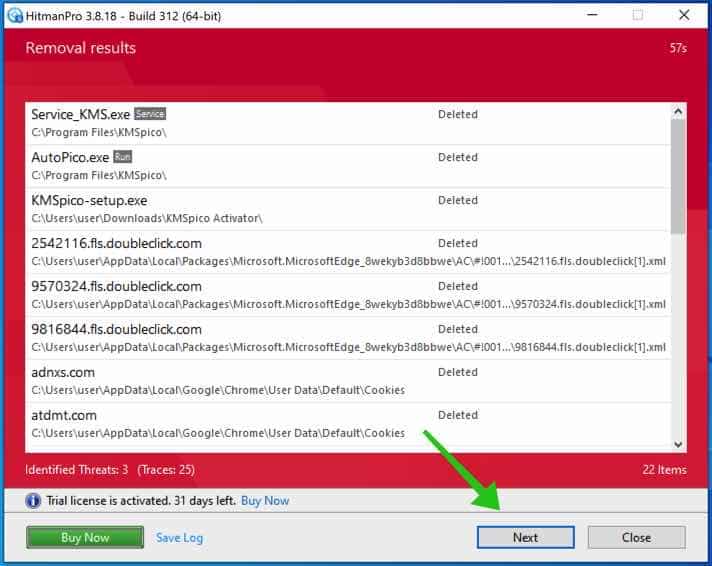
Malicious software was partially removed from your computer. Restart your computer to complete removal.
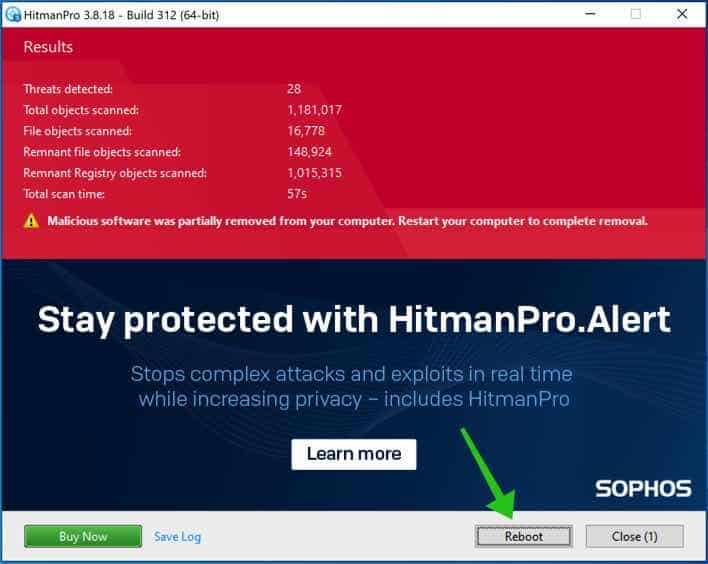
Bookmark this page when you reboot your computer.